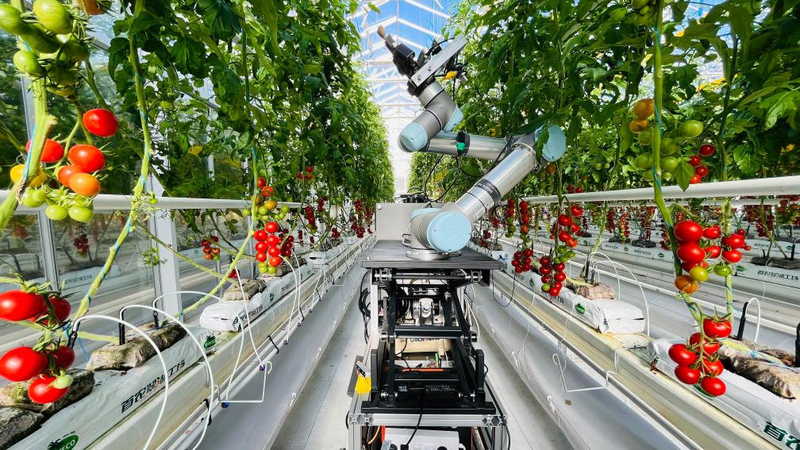Imagine stepping into a greenhouse where robotic arms gently hover above rows of flowers, identifying each bloom with AI precision. This is no sci-fi scene—it’s real today, thanks to GEAIR, the world’s first full-process plant-breeding robot developed by the Institute of Genetics and Developmental Biology (IGDB) at the Chinese Academy of Sciences.
Published in Cell, the study showcases how GEAIR combines biotechnology, AI visual recognition, and robotic dexterity to automate every step of hybrid breeding. From accurate flower selection to hybrid pollination, GEAIR navigates the greenhouse with pinpoint positioning, replacing thousands of manual cross-pollination hours with a closed-loop, data-driven workflow.
"AI and robots offer vast opportunities in shifting hybrid breeding toward precision agriculture to enhance crop yields, reduce costs and promote sustainable practices," says Xu Cao, an IGDB researcher. Hybrid breeding is key to creating superior crop varieties, but the traditional process is laborious and time-consuming.
GEAIR accelerates this process further by integrating a speed-breeding approach, enabling rapid, customized development of high-yield, resilient varieties. Key benefits include:
- Precision cross-pollination powered by AI vision
- Reduced labor and operational costs
- Faster breeding cycles with speed-breeding
- Fully integrated biotech-AI-robot labor model
As agriculture faces pressure from climate change and population growth, GEAIR’s successful demonstration marks a turning point. By marrying cutting-edge AI with biotech, China’s pioneering robotized breeding system points the way to sustainable, efficient food production for a growing world.
Reference(s):
China develops world's first full-process plant-breeding robot
cgtn.com




